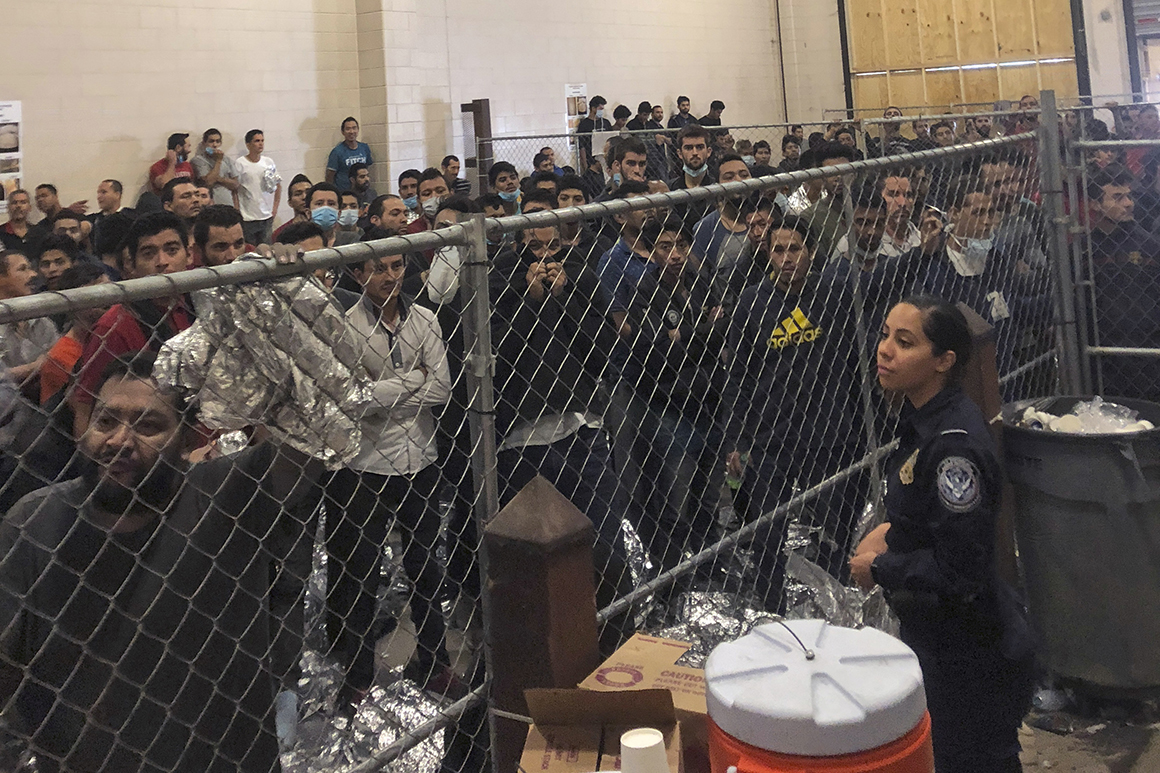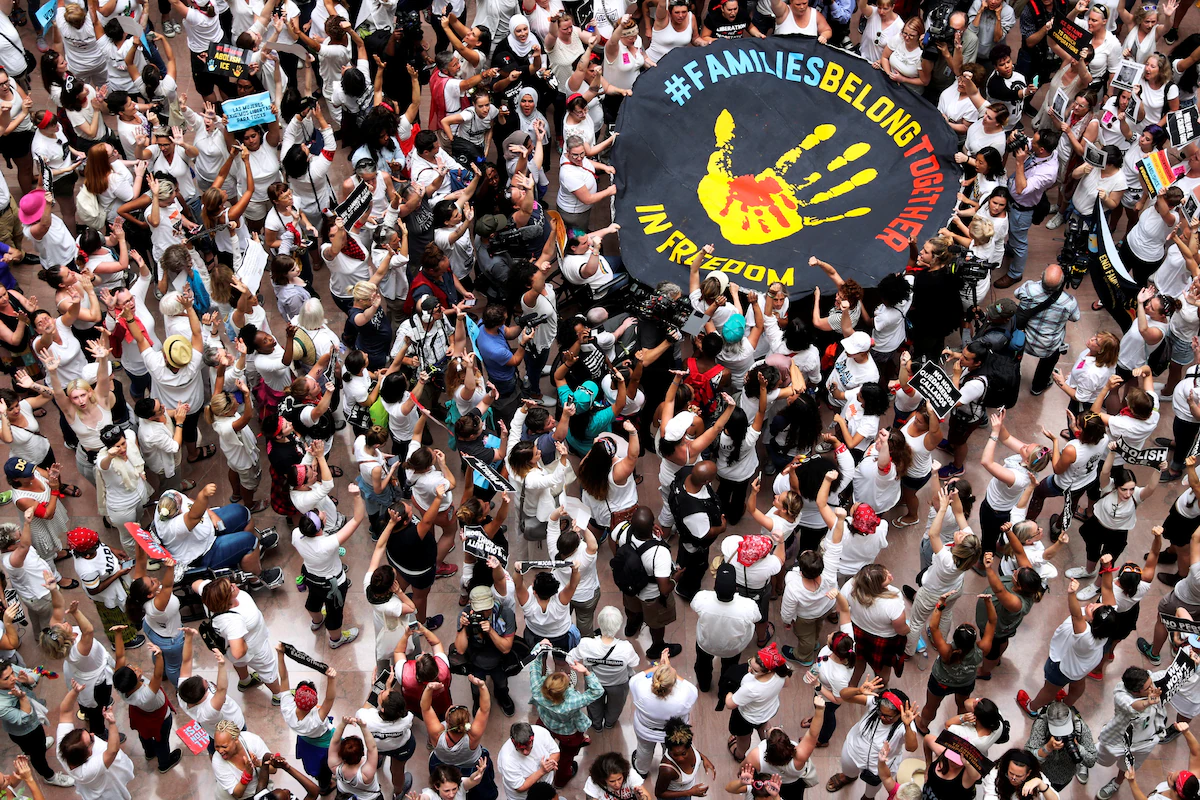The Trump administration has chosen to dismantle vital oversight offices in the Department of Homeland Security, leading to a drastic reduction in accountability at a time when at least 11 individuals have died while in ICE custody this fiscal year. This alarming trend highlights a troubling pattern in the government’s approach to immigration enforcement and raises serious questions about the safety and rights of those detained.
Oversight Offices Closed Amid Rising Deaths
Three months into the closure of oversight offices, advocates and whistleblowers are sounding the alarm on the consequences of slashing staff from hundreds to just a dozen. The Department of Homeland Security, under Secretary Kristi Noem, has effectively gutted an already fragile system of accountability that was essential for investigating civil rights complaints and ensuring humane treatment of detainees. As reported by ICE’s own data, the number of deaths in custody is alarming, nearing the total of 12 deaths reported in all of fiscal year 2024. This indicates a potential increase in deaths as the administration intensifies its enforcement measures.
Whistleblowers Call for Accountability
Michelle Brané, a former Immigration Detention Ombudsman, warns that the actual toll of deaths could be much higher than reported. "People’s lives are at risk," she states emphatically, underscoring the gravity of the situation. Katie Shepherd, another whistleblower from the Office for Civil Rights and Civil Liberties, echoes her concerns, suggesting that the minimal staffing remaining has severely hampered their ability to oversee detention facilities effectively. The implications of this oversight collapse are dire and underscore the urgent need for reform.
\n\n
Migrant mental health crisis spirals in ICE detention ...
Private Prisons Expand as Oversight Contracts
As internal oversight is dismantled, private immigration detention contractors are rapidly expanding operations. CoreCivic is reopening the Dilley detention center, while GEO Group is reactivating facilities in Georgia and Newark, New Jersey. These expansions come at a time when the Trump administration is aggressively pursuing immigration enforcement measures, which raises ethical concerns about privatized detention. Such facilities have faced allegations of inhumane conditions and medical neglect, as advocates argue that the lack of oversight exacerbates these issues. The growing role of private prisons in immigration detention is a stark reminder of the profit motive that drives the system.
Legal Challenges to Oversight Closures
In response to these closures, advocacy groups have taken legal action. Organizations like Robert F. Kennedy Human Rights and the Southern Border Communities Coalition have filed lawsuits against the Trump administration, arguing that the elimination of these oversight offices is unlawful. The courts have been presented with documents showing that hundreds of employees were suspended en masse, effectively shutting down critical oversight functions. According to court filings, many complaints regarding medical neglect and wrongful deportation remain unresolved, demonstrating the dire consequences of insufficient oversight.
\n\n
Immigration protest: 50,000 expected to rally against Trump ...
Department of Homeland Security"s Contradictory Stance
The Department of Homeland Security claims to remain committed to civil rights protections, yet the actions taken paint a contradictory picture. DHS Assistant Secretary Tricia McLaughlin stated that the department is streamlining oversight to enhance efficiency, but this has resulted in fewer resources for crucial functions. Critics argue that this streamlining is merely a guise for dismantling accountability measures. In a recent declaration, DHS laid out plans to rebuild the three oversight offices, but internal documents suggest that these efforts are fraught with challenges and may not adequately address the scale of the problem.
As the Trump administration’s immigration policies continue to unfold, the consequences for marginalized communities grow more severe. The reduction of oversight in the face of increasing detention numbers and deaths raises urgent questions about the ethical implications and human rights of those caught in this system.

![[Video] Federal officers deploy sting balls and flash grenades at Whipple Building](/_next/image?url=%2Fapi%2Fimage%2Fthumbnails%2Fthumbnail-1768340555229-vhfcc-thumbnail.jpg&w=3840&q=75)
![[Video] Crowd-control weapons used in Minneapolis as anti-ICE protesters attack police vehicle](/_next/image?url=%2Fapi%2Fimage%2Fthumbnails%2Fthumbnail-1768336302231-akxf7s-thumbnail.jpg&w=3840&q=75)

![[Video] Protests erupt in Minneapolis after ICE detains teenager, multiple arrests made](/_next/image?url=%2Fapi%2Fimage%2Fthumbnails%2Fthumbnail-1768331835371-z9ylqg-thumbnail.jpg&w=3840&q=75)


![[Video] Gunfire between Iraqi security forces and Sadr militias in Baghdad](/_next/image?url=%2Fapi%2Fimage%2Fthumbnails%2Fthumbnail-1768343508874-4redb-thumbnail.jpg&w=3840&q=75)
